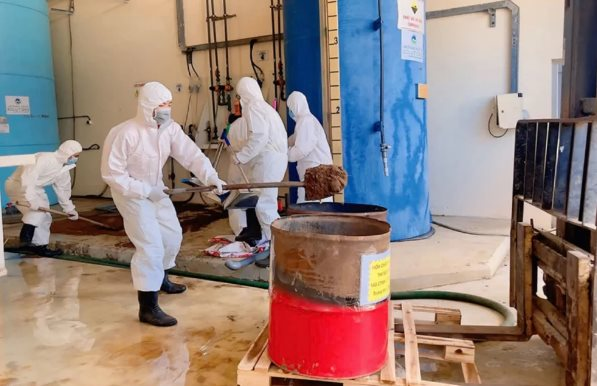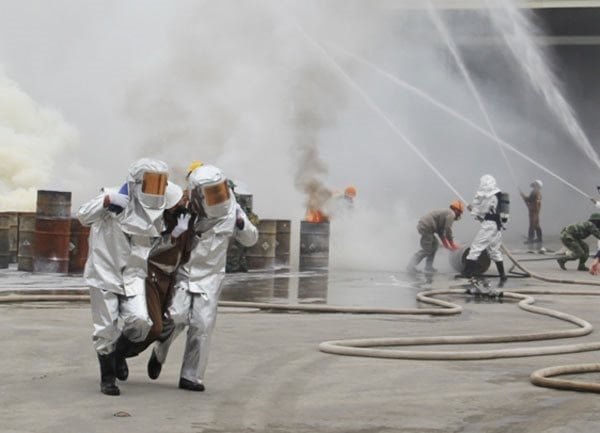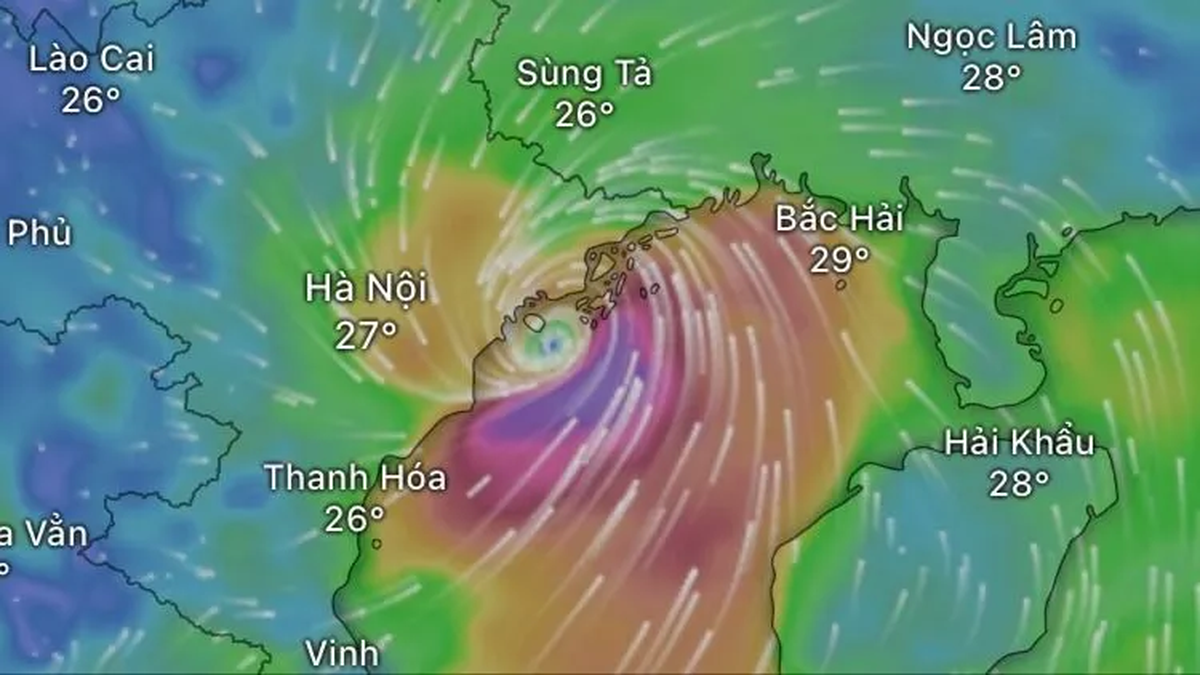
In order to respond to waste incidents, in recent years, Binh Thuan province has applied and implemented well the motto of "4 on-site" and "3 ready", proactively responding, quickly overcoming consequences, and at the same time building an organizational system with sufficient capacity to respond, overcome consequences, and minimize human, economic, social and environmental damage. Assess and identify the situation and the possibility of incidents occurring, propose response plans and measures, mobilize additional resources if necessary; monitor and organize incident response and remediation at the scene according to the determined plan, and supplement forces and means for the response force when necessary. In addition, the province also forecasts basic situations of common solid waste incidents in daily life and industry, hazardous waste incidents, liquid waste incidents, gas waste incidents, etc. To proactively prevent and promptly respond to possible incidents, and at the same time comply with Decision No. 11/2025/QD-TTg dated April 23, 2025 of the Prime Minister promulgating the Regulations on responding to waste incidents occurring in production, business and service activities, Binh Thuan province continues to prepare for incident response; organize incident response; renovate and restore the environment after incidents; support mechanisms for environmental response and restoration, participation of the community and responsibilities of relevant agencies, organizations and individuals. Response to waste incidents occurring at sea is in accordance with legal provisions on responding to toxic chemical incidents, responding to oil spill incidents and other relevant legal provisions. The principle of waste incident response is to proactively prevent, proactively develop plans, prepare resources, and coordinate solutions to be ready to respond when waste incidents occur. Organize timely reception and processing of waste incident information, prioritize information assurance for response activities, and promptly report to competent authorities when response capacity is exceeded. In particular, waste incident response is based on the four on-site motto: on-site command; on-site forces; on-site means and materials; on-site logistics and three readiness: proactive prevention, timely response, urgent and effective remediation. In addition, coordinate and mobilize all resources to improve the effectiveness of waste incident preparation and response activities, ensuring safety measures for waste incident response forces and people in areas affected by waste incidents.

According to regulations, organizations and individuals causing waste incidents must be responsible for paying the costs of responding to waste incidents, environmental remediation and restoration, compensation for damages and other costs caused by waste incidents, except in cases where the State pays according to the provisions of law. The legal representative of the facility or an authorized person is the person in charge of responding to incidents at the facility. The person in charge of responding to waste incidents at the facility must organize incident response, assess the scope of impact and the facility's ability to respond on its own for activities. In case of incidents within the facility's ability to respond on its own, the person in charge is responsible for incident response measures according to the approved plan and scenario, and is responsible for reporting to the District Civil Defense Command and the Commune People's Committee on incident response within 24 hours from the time of incident detection. In case the incident is beyond the facility's ability to respond, the commander must immediately notify the People's Committee of the commune, the Civil Defense Command of the commune where the incident occurs, or the Civil Defense Command of the district to organize the response, hand over command to the Civil Defense Command of the district, and direct the facility's incident response force according to the request of the Civil Defense Command of the district. The project owner and the facility causing the waste incident must restore the environment after the waste incident within the facility. The People's Committee of the commune where the waste incident occurs is responsible for inspecting and supervising environmental restoration activities. Environmental restoration after waste incidents at the district, provincial, and national levels is regulated in Clause 2, Article 126 of the Law on Environmental Protection. Environmental rehabilitation and restoration after an incident must ensure compliance with technical standards on the quality of the surrounding environment, restoration of residential areas, production and business, and the natural environment for areas without a preserved ecosystem, and restoration of some key characteristics of the ecosystem for areas with a preserved ecosystem.
Source: https://baobinhthuan.com.vn/ung-pho-su-co-chat-thai-theo-phuong-cham-bon-tai-cho-va-ba-san-sang-131030.html






































































































Comment (0)